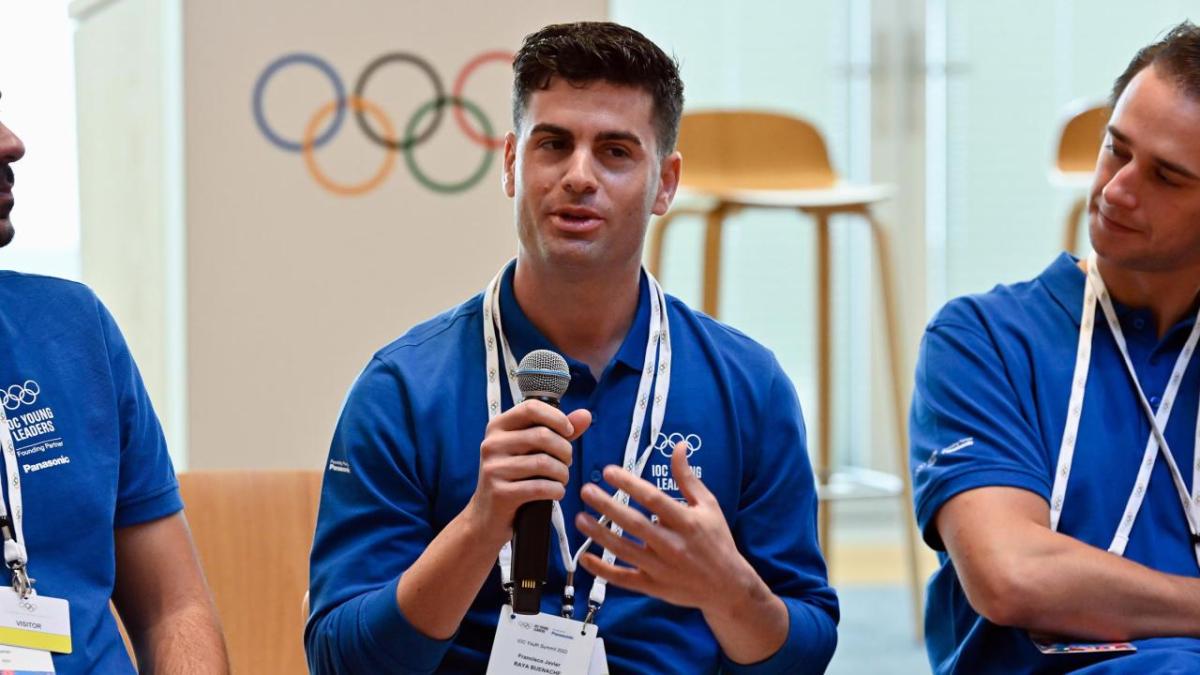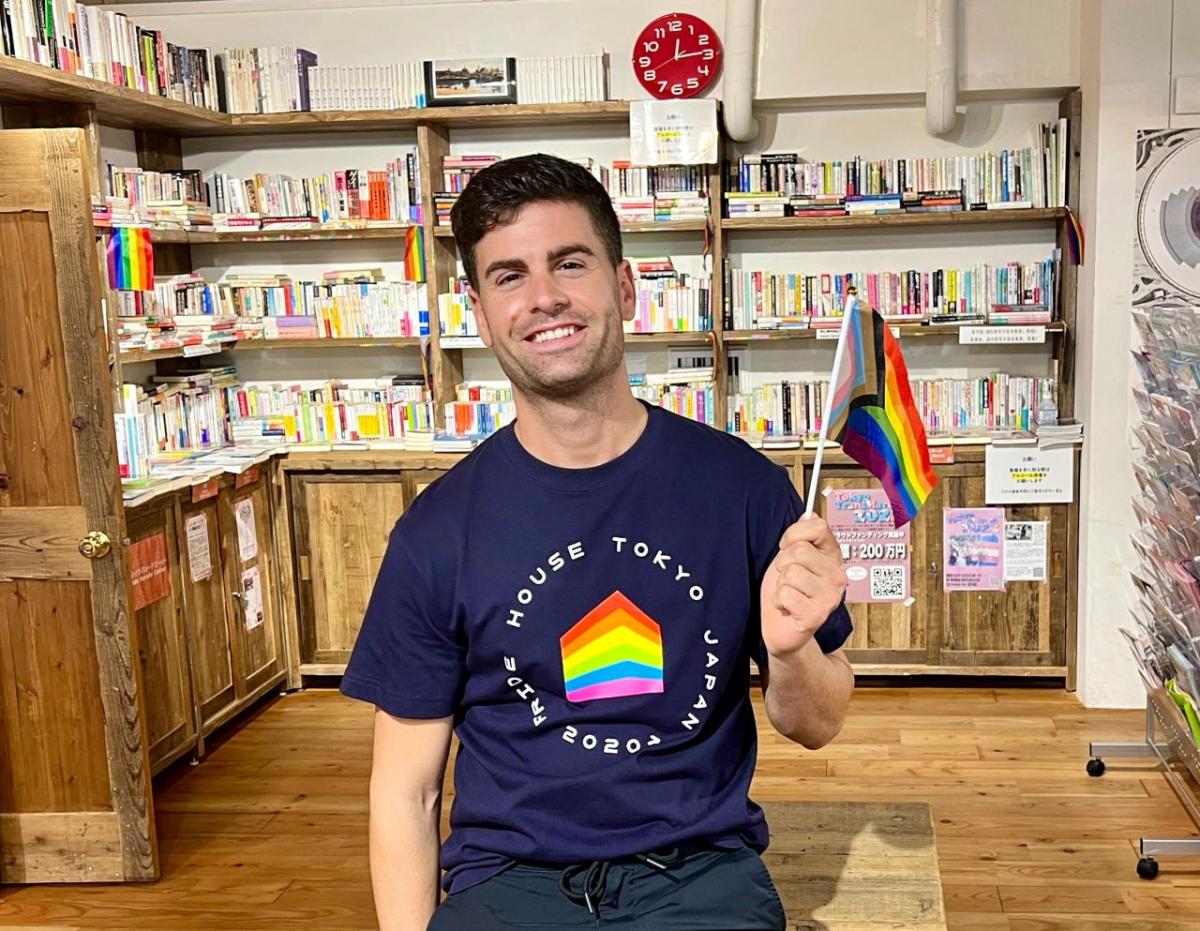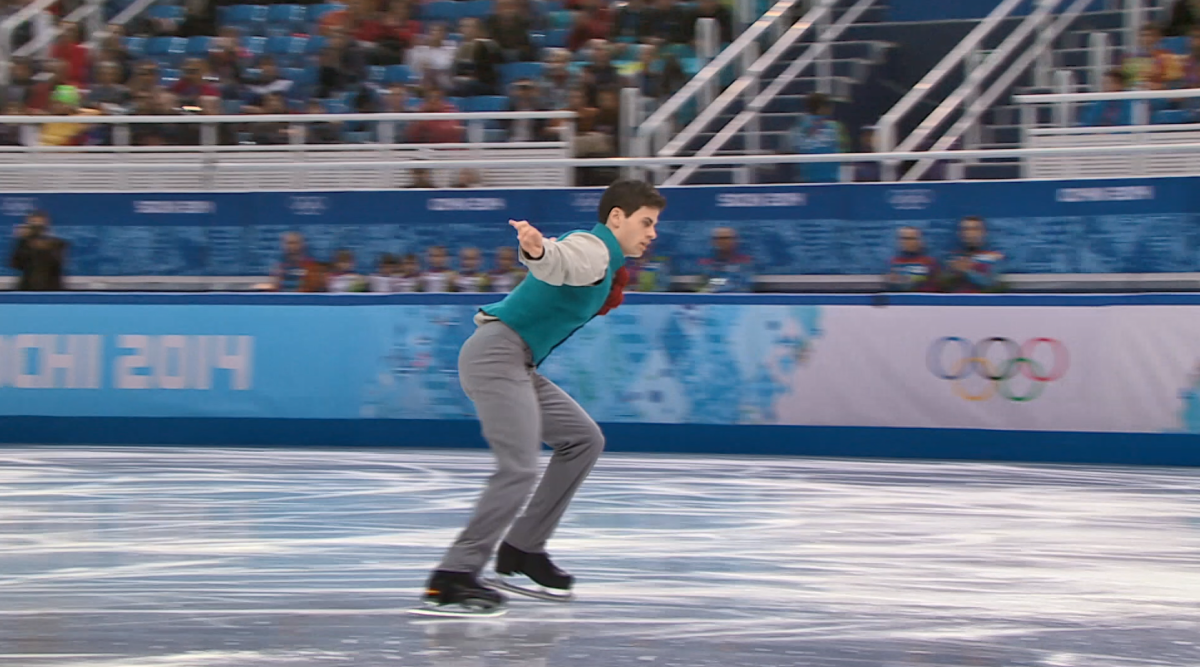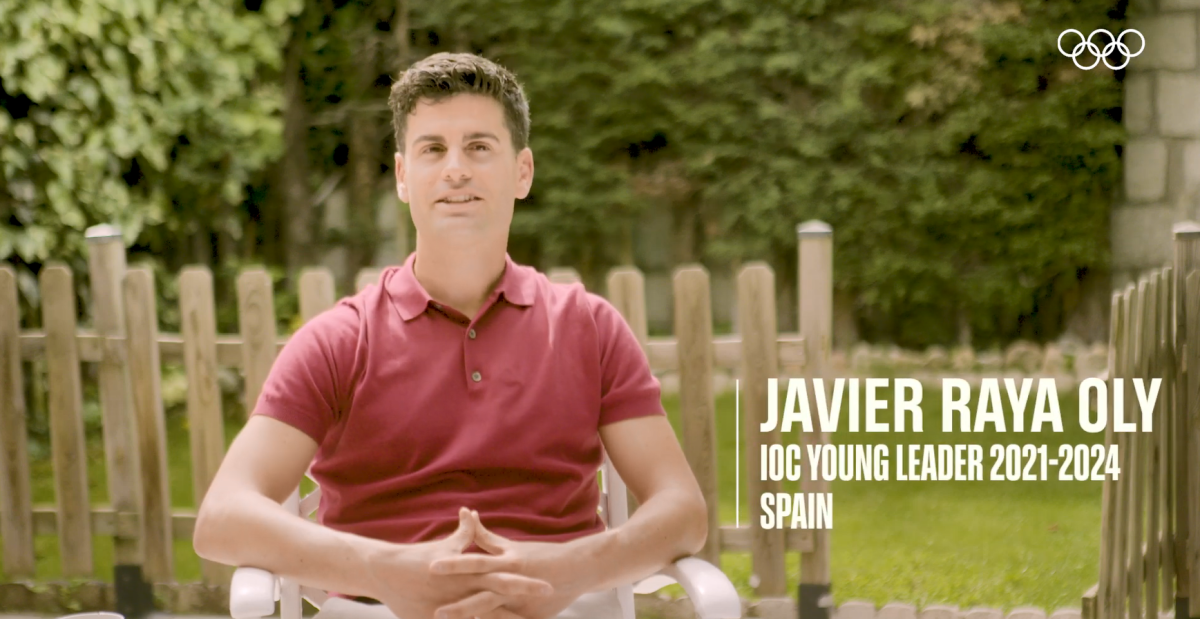Olympian and IOC Young Leader Javier Raya: “Sport Is a Powerful Driver Towards Greater Inclusion”
International Olympic Committee news
To mark the International Day Against Homophobia, Transphobia and Biphobia, which is celebrated globally on 17 May, IOC Young Leader Javier Raya speaks about the role that sport can play in promoting inclusion, and reflects on his own experience as an openly gay athlete.
Javier Raya competed at the highest level of international figure skating for over 15 years, taking to the ice at the Olympic Winter Games Sochi 2014, as well as at numerous World and European Championships.
The Spaniard came out publicly in 2016, two years after competing in Sochi, and credits sport for helping him to feel more accepted. After retiring from competitive skating in 2018, Raya is now part of the International Olympic Committee (IOC)’s Young Leaders programme – an initiative that provides budding social entrepreneurs with mentorship, learning opportunities and seed-funding to launch projects that leverage the power of sport to make a positive difference in their communities.
Having experienced sport’s ability to foster inclusion and diversity, Raya was keen to focus on this issue with his own project, and so “Compete Proud” was born. This digital platform features inspirational stories and experiences of LGBTQI+ athletes, while also providing supportive tools and resources to help make sport more diverse and inclusive.
Here, Raya talks about the launch of Compete Proud, the role sport can play in inclusion efforts, and his own experiences.
What does the International Day Against Homophobia, Transphobia and Biphobia mean to you?
For me, it’s an important day to observe that there’s still a lot to be done, not only in sport but in general, with regard to the LGBTQI+ community. It’s a day on which we need to raise awareness about the ongoing discrimination of the community.
How can sport help to fight discrimination and promote inclusion?
Sport can be a powerful tool and a driver towards greater inclusion, accepting and respecting everyone in our society for who they are despite differences, embracing their diversity.
How does Compete Proud help promote inclusion for LGBTQI+ athletes?
Compete Proud provides not only the first-hand experiences of athletes and Olympians as a DEI (Diversity, Equity and Inclusion) community platform, it also provides educational tools and resources through webinars and workshops on specific topics, showcasing these to sports organisations or corporate companies. It also brings forward the conversation around Diversity, Equity and Inclusion in sport so that every minority group is represented.
What themes are addressed through Compete Proud, and what services are provided to tackle these themes?
Ten themes are covered, ranging from the history of LGBTQI+ athletes in sport through to the coming-out journey for athletes, competing “proud”, sponsorship and career transition. Through the themes, we approach the different stages of an athlete’s life, as a competitor or as a retired athlete, and how – as part of the LGBTQI+ community – we can help these athletes or sports organisations to increase awareness and implement inclusive tools. The ultimate goal of Compete Proud is to push forward inclusion in sport, whether that is helping athletes directly or improving the DEI strategies of sports organisations, from grassroots to the Olympic stage.
How can we ensure that sport is inclusive for the LGBTQI+ community?
Each person, on an individual level, can have a significant impact on someone else’s life, including in their experience in sport as an LGBTQI+ athlete. For example, it is important to set an inclusive tone at the beginning of activities with a group of athletes, such as stating that: “This class/team is a safe space for the LGBTQI+ community/individuals, and it’s free of discrimination.” This already ensures that everyone is on the same page, as part of the community or as allies.
Did you have to face any challenges as an openly gay athlete?
For me, my biggest challenge was during high school, as I struggled to deal with bullying from other classmates. They would discriminate against me because the sports I practised, figure skating and ballet, were not commonly practised by boys. Thankfully, I pursued my sports career and moved to the national training centre at a young age, where I felt accepted, which in turn helped me reach my dream of becoming an Olympian. That’s why I believe that sport can be such a powerful tool, because for me it did change my life.
Who has been an ally to you during your career?
My family, friends and coaches were all allies. There’s no doubt that I would have not become an athlete without my parents’ support. They supported me in many ways, including emotionally, whenever I struggled. I know I’m very lucky, because not everyone’s story as part of the LGBTQI+ community is the same. Not everyone can have their parents’ support to practise the sport they love, especially when the chosen sport doesn’t fit conventional stereotypes of a society one lives in.
Even beyond that, my parents were there every step of the way when I suffered bullying at school, intervening when necessary. They did everything they could to protect me from suffering and to enable me to continue figure skating and progressing in life. When I came out, I felt comfortable sharing with them who I was fully, as they had very openly educated both my brother and me to respect everyone and to accept each other.
The International Day Against Homophobia, Transphobia and Biphobia was created in 2004 to draw attention to the violence and discrimination experienced by lesbian, gay, bisexual, trans and intersex people, and all of those with diverse sexual orientations, gender identities or expressions, and sex characteristics.
IOC Young Leaders Programme is contributing to Olympism 365 days a year
Launched in 2016, the IOC Young Leaders Programme empowers young people to leverage the power of sport to make a positive difference in their communities, and therefore contributes to the Olympism365 strategy aimed at strengthening the role of sport as an important enabler of the UN Sustainable Development Goals (SDGs) in direct response to the IOC’s Olympic Agenda 2020+5.
So far, with the support of the IOC, these inspiring young people have delivered over 140 sport-led projects in communities across the globe, promoting education and livelihoods, equality and inclusion, health, peace building and sustainability, directly benefitting more than 30,000 people. Learn more about the IOC Young Leaders Programme and the Olympism365 strategy.
Worldwide Olympic Partner Panasonic’s continued support
The IOC Young Leaders Programme has been supported by Worldwide Olympic and Paralympic Partner Panasonic since 2017, and this will continue through to 2024. Panasonic, as the programme’s founding partner, is committed to supporting the IOC Young Leaders through different initiatives, for example providing its creative and technological expertise, along with its network of influencers and ambassadors, to inspire the Young Leaders and equip them with the skills and tools they need to enhance their projects.
Find out more about Panasonic’s support for the programme.





